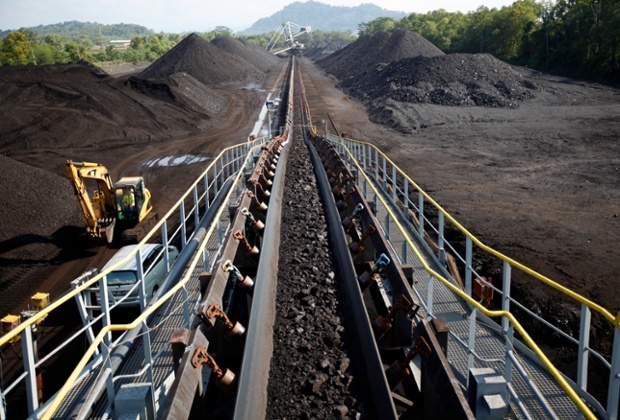
Coal is moved on a conveyor belt at the PT Bukit Asam open pit coal mine in Tanjung Enim, South Sumatra province, Indonesia. Photograph: Dadang Tri/Getty Images
Special report: The plummeting coal sector and a growing green divestment movement is leaving firms who still invest in fossil fuels and connected pension holders heavily exposed
theguardian.com - by Damian Carrington and Caelainn Barr - June 15, 2015
The pension funds of millions of people across the world, including teachers, public sector workers, health staff and academics in the UK and US, are heavily exposed to the plummeting coal sector, a Guardian analysis has revealed.
It has also found that just a dozen people, including the owner of Chelsea FC, Roman Abramovich, own coal reserves equivalent to the annual carbon emissions of China, the world’s biggest polluter. The UN, which advocates a shift to clean energy, has more than $100m (£65m) invested in coal through its own pension fund.
(READ COMPLETE ARTICLE)
Recent Comments